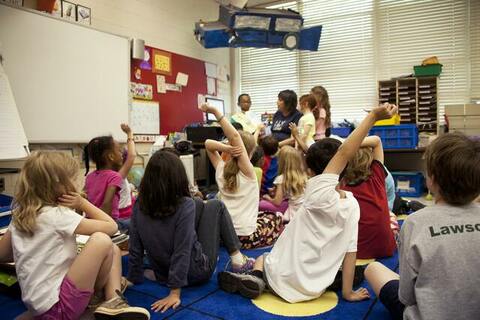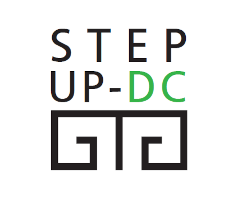Session 8, Culture, Refugees and Identity
STEPUP-DC Project

Course DescriptionBasic Topics
- Definitions of culture and cultural identity in postmodernity.
- The metaphor of cultural iceberg by Edward Hall.
- The notion of interculturalism and its underlying principles.
- Intercultural literacy: definition, axes, and importance for active democratic citizenship.
- Active democratic citizenship for interculturalism.
- Intercultural school practices.
Duration
The duration of the session is 9 hours (3 reading+3 learning+3 working/practicing)
Objectives
The Objectives of this session are:
- To support students in developing a critical understanding of the socio-psychological process of construction of identity and of the role of formal education in this process.
- To support students in developing an understanding of the interplay and interdependence between culture and identity.
- To support students in recognising and appreciating diversity ins society (migrants refugees etc.).
- To familiarise students with the principles of intercultural and multicultural education and with the debates within the relevant academic literature.
Learning outcomes
On completion of the session the students will be able to:
- Students will be able to critically analyse the meanings of key concepts related to intercultural education, including culture, cultural identity, cultural diversity, and interculturalism;
- Students will be able to describe the principles underlying interculturalism.
- Students will be able to develop and implement effective intercultural school practices.
Outcomes and CDC
- Knowledge and critical understanding:
- Knowledge and critical understanding of the world (including politics, law, human rights, culture, cultures, religions, history, media, economies, the environment and sustainability)
- 20.126: Can explain the dangers of generalising from individual behaviours to an entire culture.
- Values
- Valuing cultural diversity
-
2.10 Argues that intercultural dialogue should be used to help us recognise our different identities and cultural affiliations
- Valuing democracy, justice, fairness, equality and the rule of law
- 3.12 Argues that schools should teach students about democracy and how to act as a democratic citizen
- Attitudes
- Openness to cultural otherness
- 4.26 Seeks contact with other people in order to learn about their culture.
- Respect
- 5.29 Treats all people with respect regardless of their cultural background
- Tolerance of ambiguity
- 9.55 Expresses a desire to have his/her own ideas and values challenged
- Skills
- Empathy
-
13.81 Accurately identifies the feelings of others, even when they do not want to show them
- Flexibility and adaptability
-
14.87 Can modify his/her own behaviour to make it appropriate to other Cultures
- Definitions of culture and cultural identity in postmodernity.
- The metaphor of cultural iceberg by Edward Hall.
- The notion of interculturalism and its underlying principles.
- Intercultural literacy: definition, axes, and importance for active democratic citizenship.
- Active democratic citizenship for interculturalism.
- Intercultural school practices.
The duration of the session is 9 hours (3 reading+3 learning+3 working/practicing)
The Objectives of this session are:
- To support students in developing a critical understanding of the socio-psychological process of construction of identity and of the role of formal education in this process.
- To support students in developing an understanding of the interplay and interdependence between culture and identity.
- To support students in recognising and appreciating diversity ins society (migrants refugees etc.).
- To familiarise students with the principles of intercultural and multicultural education and with the debates within the relevant academic literature.
On completion of the session the students will be able to:
- Students will be able to critically analyse the meanings of key concepts related to intercultural education, including culture, cultural identity, cultural diversity, and interculturalism;
- Students will be able to describe the principles underlying interculturalism.
- Students will be able to develop and implement effective intercultural school practices.
- Knowledge and critical understanding:
- Knowledge and critical understanding of the world (including politics, law, human rights, culture, cultures, religions, history, media, economies, the environment and sustainability)
- 20.126: Can explain the dangers of generalising from individual behaviours to an entire culture.
- Knowledge and critical understanding of the world (including politics, law, human rights, culture, cultures, religions, history, media, economies, the environment and sustainability)
- Values
- Valuing cultural diversity
-
2.10 Argues that intercultural dialogue should be used to help us recognise our different identities and cultural affiliations
-
- Valuing democracy, justice, fairness, equality and the rule of law
- 3.12 Argues that schools should teach students about democracy and how to act as a democratic citizen
- Valuing cultural diversity
- Attitudes
- Openness to cultural otherness
- 4.26 Seeks contact with other people in order to learn about their culture.
- Respect
- 5.29 Treats all people with respect regardless of their cultural background
- Tolerance of ambiguity
- 9.55 Expresses a desire to have his/her own ideas and values challenged
- Openness to cultural otherness
- Skills
- Empathy
-
13.81 Accurately identifies the feelings of others, even when they do not want to show them
-
- Flexibility and adaptability
-
14.87 Can modify his/her own behaviour to make it appropriate to other Cultures
-
- Empathy
A series of resources that the student teacher must study in this session and a series of additional resources for further study.
A full paper and additional e-lessons on the topics of the session and additional interactive presentation of the materials, for the student teachers to study all the materials in a row.
A series of authentic, up to date and relevant activities with their accompanying materials, which deliver the intended learning outcomes of the session and are carried out face to face or E-learning with groups of student teachers.
Several types of questions to evaluate how much the student teachers have learned throughout the session (reading material, learning material and workshop).
